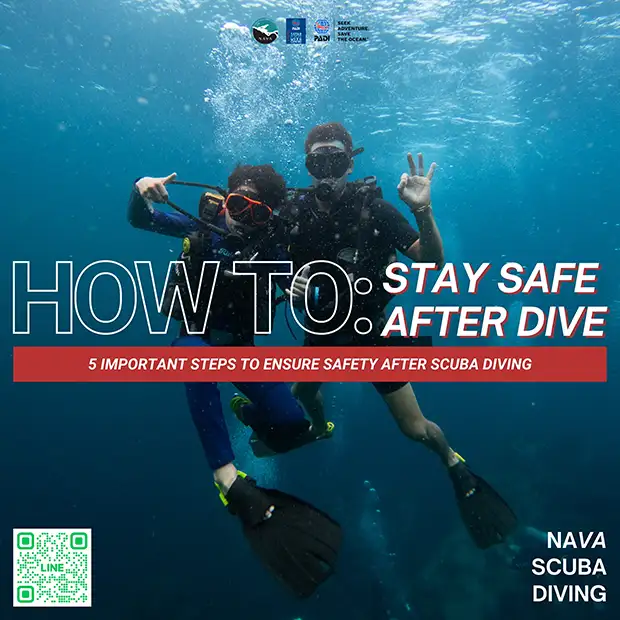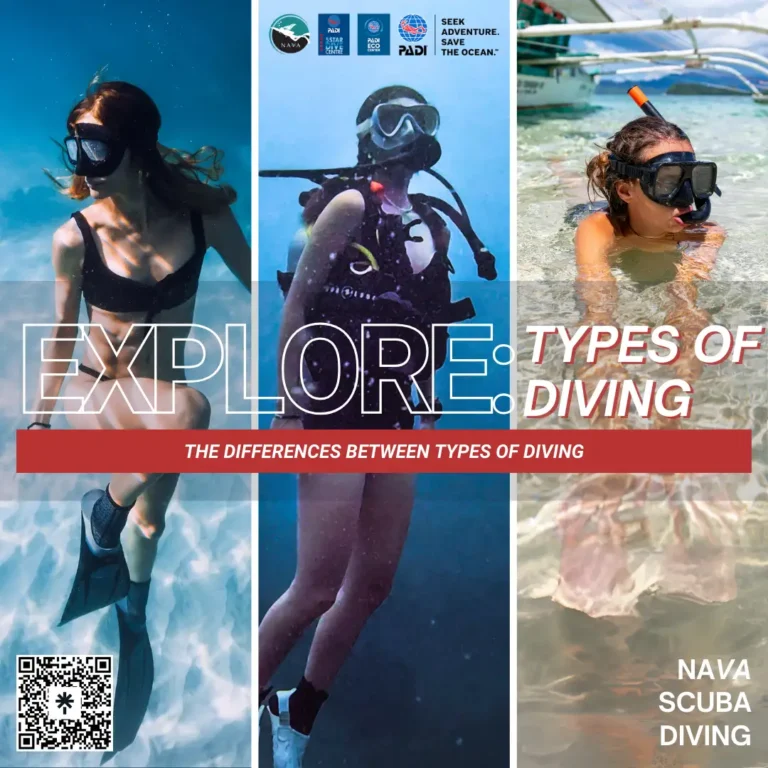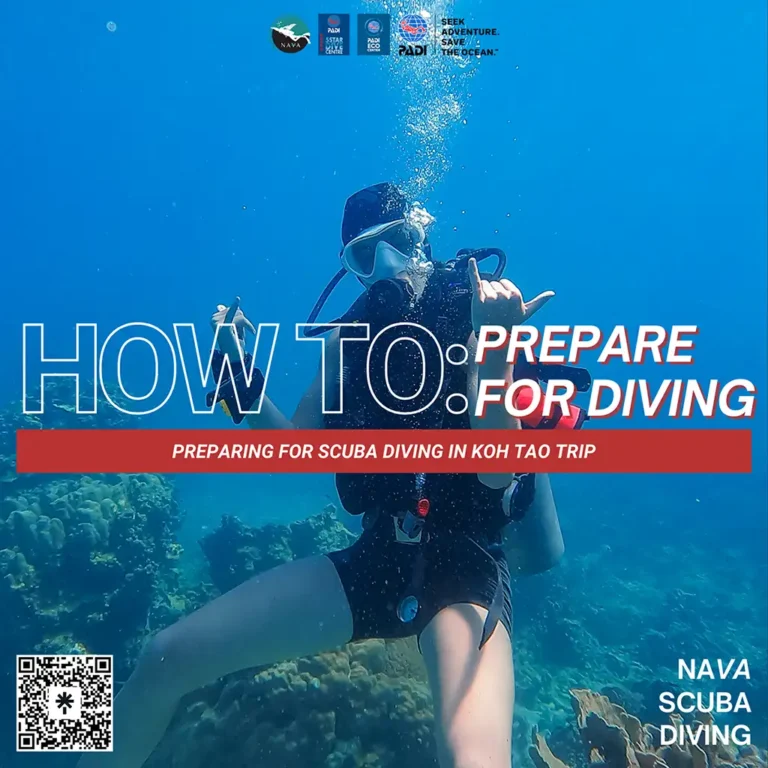5 Important Steps To Stay Safe After Scuba Diving

5 Important Steps To Ensure Safety After Scuba Diving
During your scuba diving trip in Koh Tao, you probably already know what you should not do to protect nature and yourself. However, you should also be cautious about what you should and shouldn’t do after scuba diving. The post-dive period is crucial for your health and safety, especially when it involves the potential development of decompression illness (DCI).
Decompression illness (DCI) occurs when the surrounding pressure on the body decreases. It includes two conditions: decompression sickness (DCS) and arterial gas embolism (AGE). DCS happens when bubbles form in body tissues, leading to localized damage. AGE occurs when bubbles enter the arterial system, traveling through the arteries and possibly causing tissue damage by obstructing blood flow in small vessels.
As a certified scuba diver, you must already remember the underwater essentials rule. This article will explore essential post-dive safety practices to keep you safe, healthy, and ready for your next underwater expedition.
Don’t fly immediately after the scuba diving
After your fantastic fun diving trip or dive course, exploring vibrant coral reefs, and seeing incredible marine life, there’s an important safety rule to remember before you hop on a plane home: do not fly too soon after scuba diving.
Flying after scuba diving is discouraged because when you fly, the atmospheric pressure in the cabin is lower than at sea level, even in a pressurized cabin. This reduced pressure can cause the absorbed nitrogen in your body during the dive to form bubbles, leading to decompression illness (DCI).
Depending on the depth and number of dives, we advise divers to wait at least 12-24 hours before flying. To align with Divers Alert Network (DAN), we recommend a minimum pre-flight surface interval of at least 18 hours after consecutive dives. Or even easier, you can follow your dive computer’s recommendation on the no-fly time.
Stop getting a deep-tissue body massage
Just like with flying, it is important to give your body enough time to release the extra nitrogen safely. A deep tissue massage increases blood circulation and can quickly move nitrogen bubbles around your body. It also applies pressure to your muscles and tissues, which can cause tiny nitrogen bubbles to merge and form more giant bubbles, increasing the risk of DCI.
Generally, the risk associated with a gentle relaxation massage is not high. However, experts recommend waiting at least 18-24 hours after diving before getting a massage. This waiting period helps ensure that the nitrogen is released gradually and safely. Remember this before you walk into your next-door spa for that relaxing Thai massage.
Avoid Freediving after scuba diving excursions
According to the Divers Alert Network (DAN), freediving after scuba diving can be extremely risky because physical exertion and rapid pressure change can cause absorbed nitrogen bubbles from scuba diving to form and move around your body more quickly. This activity can increase the chances of decompression illness (DCI).
It is advised not to mix serious freediving, very active deep freediving, and scuba diving too soon. Similarly to flying, you should wait at least 18 hours before your next freediving trip. Otherwise, just like suggested in your คอร์ส PADI Open Water, you can follow the recommended surface interval time on your dive computer. It will usually lock you out of the freediving mode before the no-fly time is cleared.
Refrain from drinking excessively post-diving
Like all other reasons mentioned above, your body has not entirely released extra nitrogen from scuba diving. When you drink, alcohol consumption increases blood flow and heart rate, which can cause nitrogen bubbles to move around quickly through your bloodstream. This rapid movement can lead to bubbles lodging in critical areas like joints and the spinal cord, which leads to a significant risk of causing DCI.
Alcohol can also mask the early symptoms of DCI, leading divers to ignore mild signs that might otherwise prompt them to seek medical attention. Early treatment is crucial for DCS, and any delay can result in more severe health issues.
If you want to drink after scuba diving, always remember to keep it mild and slow. It is best to wait at least a few hours and always hydrate your body by drinking plenty of water or other non-alcoholic, hydrating fluids before you get that alcoholic refreshing drink. After your afternoon dive, you can sit and relax for a while watching the beautiful sunset view on Koh Tao before a night out at Sairee beach.
Skip vigorous exercising after diving
Strenuous physical activity can cause more nitrogen to be released from tissues into the bloodstream, where it can form bubbles. This happens because exercise involves physical exertion, which increases the pressure within muscles and promotes the release of nitrogen into the bloodstream.
Exercising also increases your heart rate and blood flow, which can move those nitrogen bubbles more rapidly through your body, and this fast movement can cause bubbles to lodge in joints, muscles, and even your brain or spinal cord, leading to symptoms of DCI.
We advise divers to wait approximately 18 hours before exercising. However, according to the Divers Alert Network (DAN), researchers agree that divers should wait at least 4-6 hours before exercising, especially ones requiring muscle force.
Stay healthy after your dive expedition
After scuba diving, avoiding at least these activities is crucial to ensure your safety and prevent decompression illness (DCI). These are also a few suggestions to do after you get out of the ocean from your latest scuba dives:
- Hydrate Properly: Rehydrate by drinking plenty of water. Avoid alcohol and caffeine immediately after the dive, as they can contribute to dehydration.
- Rest and Relax: Allow your body to rest and recover properly. Avoid strenuous activities immediately after diving.
- Keep Warm: Avoid Sudden Temperature Changes: Stay warm and avoid sudden temperature changes that can stress your body. It is best to gradually warm your body after a dive.
- Perform Post-Dive Gear Checks: If you’ll be diving again soon, inspect and maintain your gear to ensure it is in good condition and safe to dive.
- Engage with your dive community: At Nava Scuba Diving, we encourage divers to share experiences, seek advice, and support each other’s growth and safety. Join us for PADI diving courses and fun dives to stay connected and enhance your skills together!

ดำน้ำที่เกาะเต่าดูฉลามวาฬ ควรดำน้ำช่วงไหนดี มีจุดเช็คอินเกาะเต่าไหนน่าสนใจบ้าง ชวนเช็กข้อมูลก่อนไปดำน้ำดูฉลามวาฬ เพื่อให้คุณมีโอกาสเจอเกาะเต่าฉลามวาฬเพิ่มมากขึ้น

รู้จักประเภทของการดำน้ำ ทั้งการดำน้ำตื้น ดําน้ํา Snorkeling การดําน้ําแบบ Freedive และการดำน้ำลึก ดําน้ําแบบ Scuba เพื่อให้คุณเลือกการดำน้ำเบื้องต้นที่เหมาะสมได้

เผยเคล็ดลับเตรียมตัวไปดำน้ำ พร้อมแนะนำเทคนิคดี ๆ เพื่อให้การเตรียมตัวก่อนดำน้ำของคุณเป็นประสบการณ์ไปดำน้ำที่เต็มไปด้วยความสนุกและปลอดภัยจากการเตรียมตัวดำน้ำที่ดี
